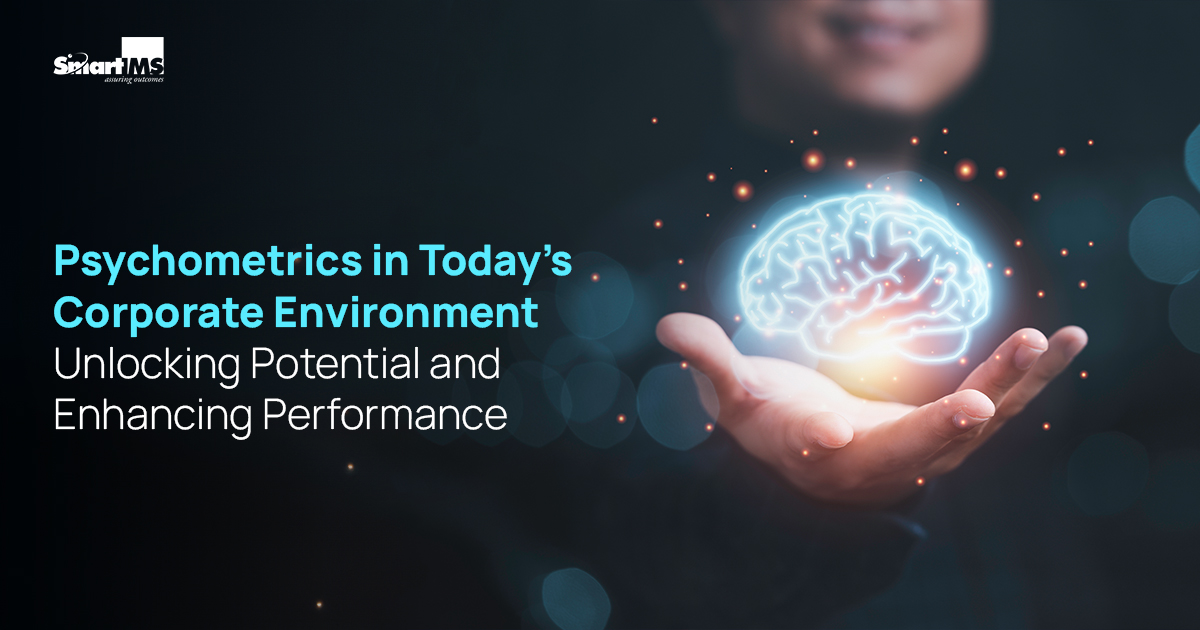In the dynamic and competitive world of modern business, organizations are constantly seeking innovative ways to enhance performance, foster talent, and maintain a competitive edge. One such tool that has gained significant traction is psychometrics – the science of measuring mental preferences/ attitudes/ capacities and processes. Psychometrics is not a new concept, but its application in today’s corporate environment is proving to be revolutionary.
Understanding Psychometrics
Psychometrics involves the measurement of skills, abilities, attitudes, personality traits, and achievement. This field of study provides quantitative data that can be used to make informed decisions – not just about hiring, coaching, or developing employees, but also preparing the organization for upcoming challenges/ opportunities in having future-ready talent. Psychometric assessments typically include personality tests, aptitude tests, and cognitive ability tests, amongst others.
The Rise of Psychometrics in the Corporate World
The integration of psychometrics into corporate practices is driven by several key factors:
Data-Driven Decision Making: In an era where data drives decisions, psychometric assessments provide concrete, objective data about employees and candidates. This information can be crucial for making informed decisions about recruitment, promotions, and team compositions for current/ future projects.
Enhanced Recruitment Processes: Traditional hiring processes often rely heavily on resumes and interviews, which can be subjective and prone to bias. Psychometric tests add a layer of objectivity, helping employers identify candidates whose personalities, skills, and values align with the company culture and job requirements.
Employee Development and Learning: Understanding the strengths and areas of development of employees through psychometric assessments allows for targeted learning programs. This personalized approach ensures that employees receive the support they need to grow and excel in their roles.
Improved Team Dynamics: Psychometrics can help in understanding how individuals with different personalities and cognitive styles interact. This knowledge can be used to build balanced teams where members complement each other’s competencies, leading to an improved collaboration, productivity and innovation.
Enhanced Employee Engagement and Retention: By using psychometric data to align job roles with individual strengths and preferences, companies can enhance job satisfaction and engagement. Employees who feel understood and valued are more likely to stay with the company, reducing turnover rates.
Applications of Psychometrics in the Workplace
Recruitment and Selection: Psychometric assessments are widely used during the hiring process to evaluate candidates’ suitability for specific roles, especially in today’s Matrix Environment. Tests such as the Myers-Briggs Type Indicator (MBTI), Hogan Personality Inventory, and various cognitive ability tests provide insights that go beyond what is visible in resumes and interviews.
Leadership Development: Identifying potential leaders within an organization is critical for succession planning. Psychometric tests help in pinpointing individuals with the right mix of leadership qualities, cognitive abilities, and emotional intelligence. Thomas profiling can be of value in such scenarios.
Conflict Resolution: Conflicts in a multi-cultural, multi-geographic matrix environment are a potential reality. Understanding the personality traits and cognitive styles of employees can aid in resolving conflicts more effectively. Psychometric assessments can highlight underlying issues and suggest approaches to address them constructively.
Career Pathing and Succession Planning: Psychometric data can guide Talent Management discussions, helping the management & employees understand their strengths and areas for opportunity & growth. This information is valuable for mapping out career paths and preparing for future leadership roles.
Employee Well-being: Organizations are increasingly focusing on the well-being of their employees, physical, mental and emotional. Psychometric assessments can identify stress levels, coping mechanisms, and overall mental health, enabling proactive measures to support employee wellness.
Challenges and Considerations
While psychometrics offers numerous benefits, it is not without few inherent challenges:
Validity and Reliability: Ensuring that psychometric tests are valid (accurately measure what they claim to assess) and reliable (produce consistent results over time) is crucial for their effectiveness.
Ethical Considerations: The use of psychometric data must be handled with care, respecting privacy, and ensuring that results are kept confidential with restrictive audience and are used constructively rather than punitively.
Cultural Bias: Tests must be designed to be culturally sensitive and free from bias to ensure fair assessment of individuals from diverse backgrounds.
Integration with Other HR Practices: Psychometric assessments should complement, not replace, other HR practices. They are most effective when used as part of a holistic approach to talent management.
Conclusion
Psychometrics is transforming the corporate landscape by offering profound insights into human behavior and potential. When utilized effectively, it can enhance recruitment, learning & development, team dynamics, and overall organizational performance & culture. As businesses continue to navigate an increasingly complex environment, the strategic use of psychometrics will be a key differentiator in building resilient, high-performing & high-potential teams. Embracing this scientific approach to understanding and optimizing human capital can lead to a more engaged, productive, and happy workforce. Our only advice is to pick the right Psychometric tool appropriate for the purpose, and be aware of the limitations and take informed decisions for the intended purpose.





